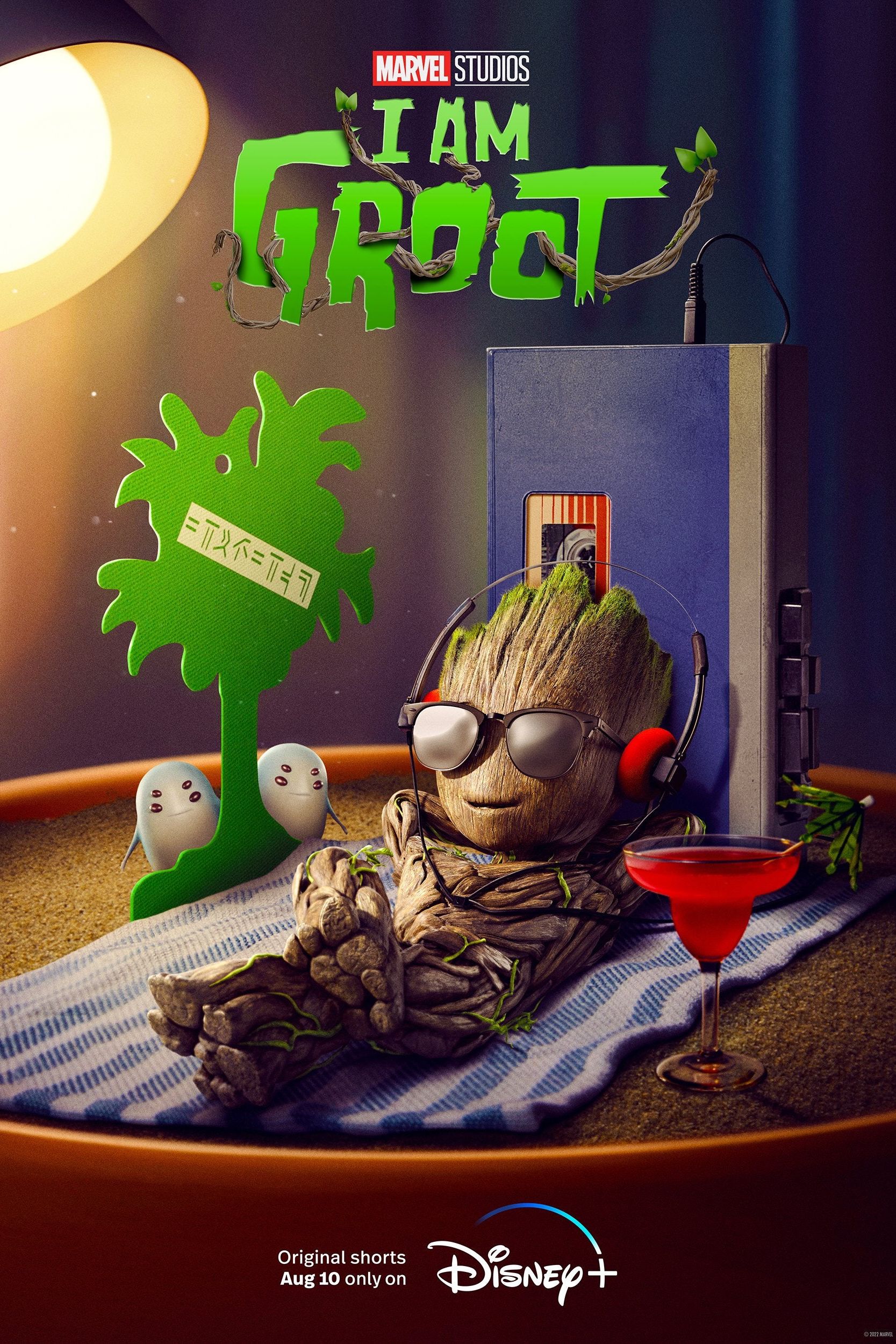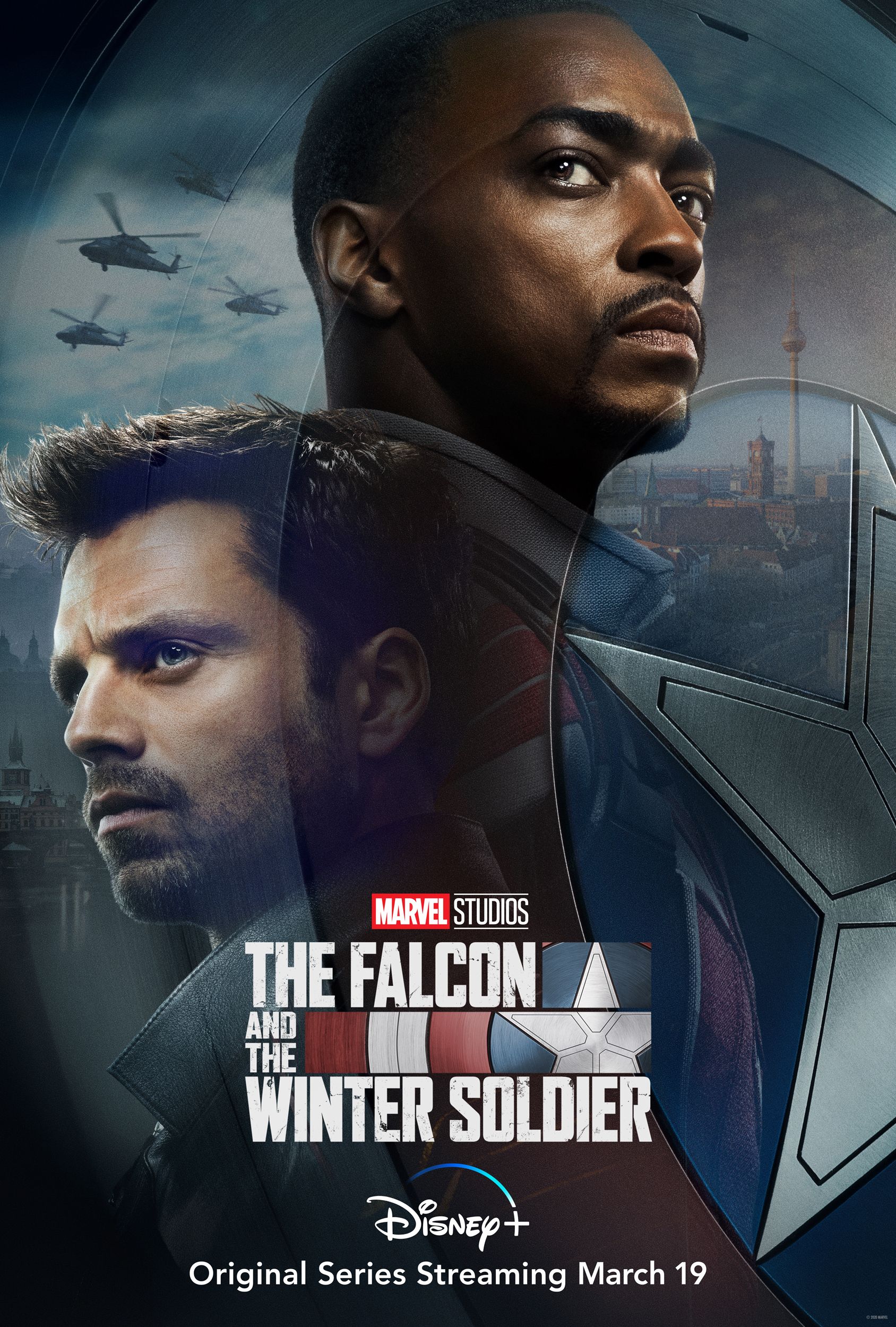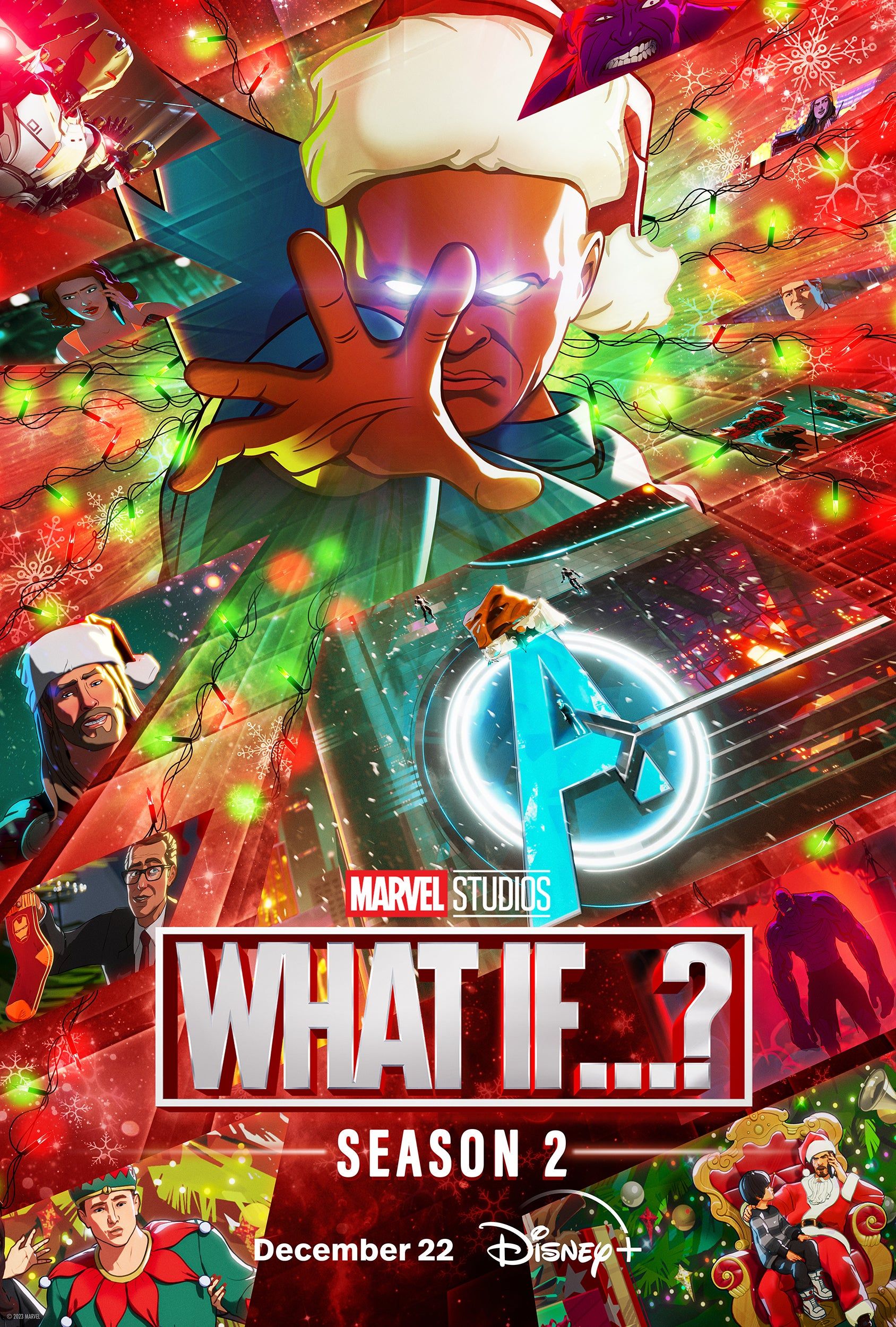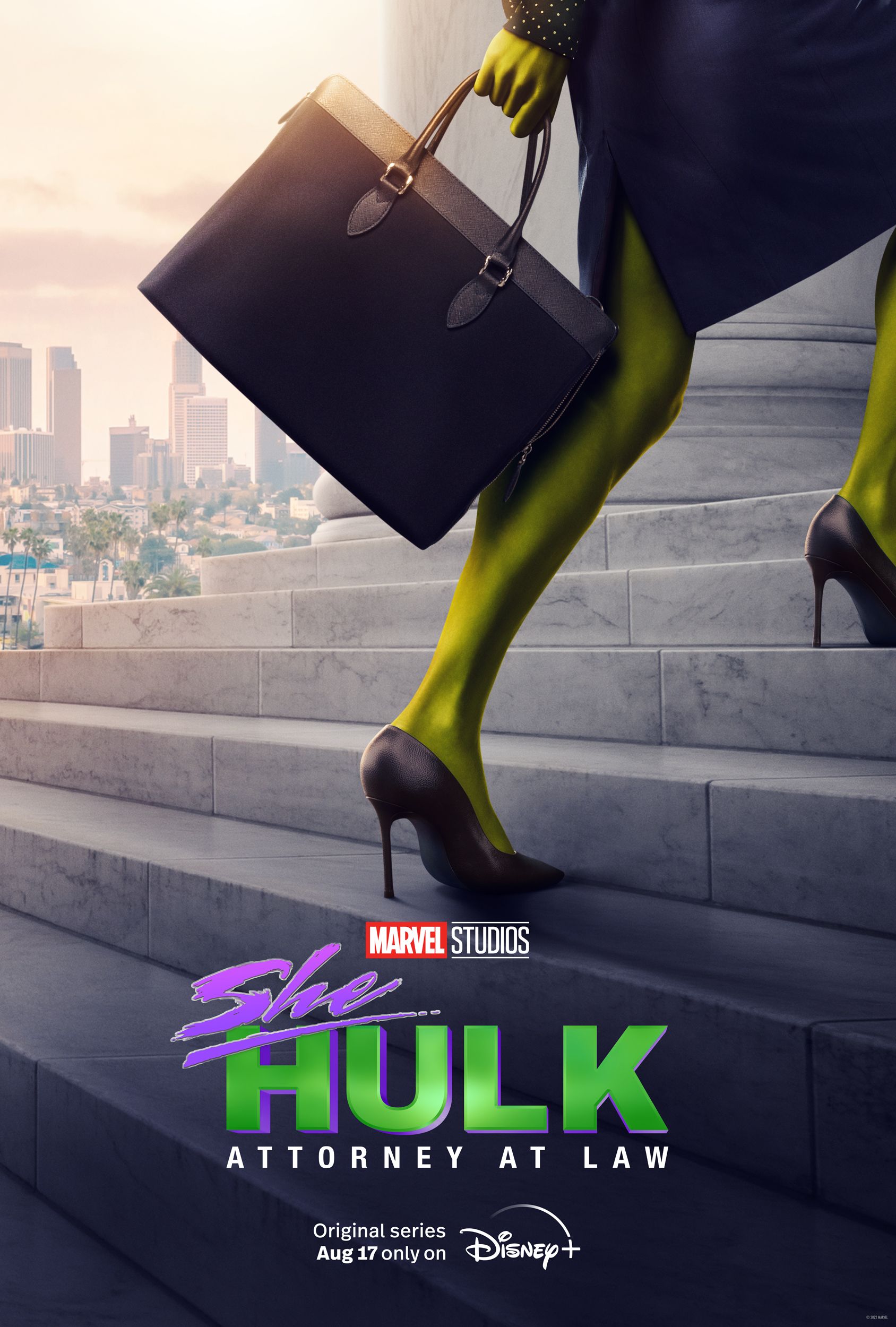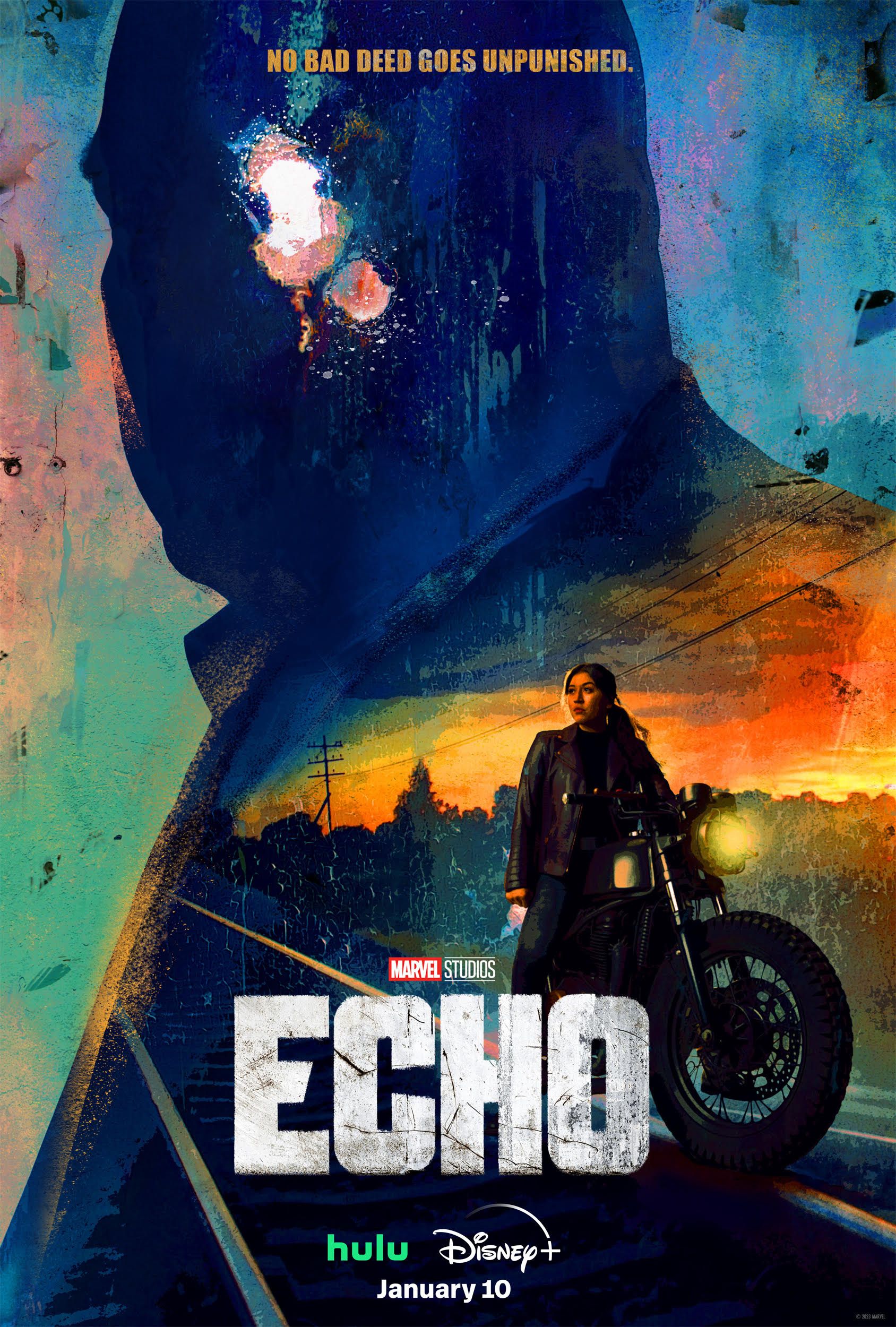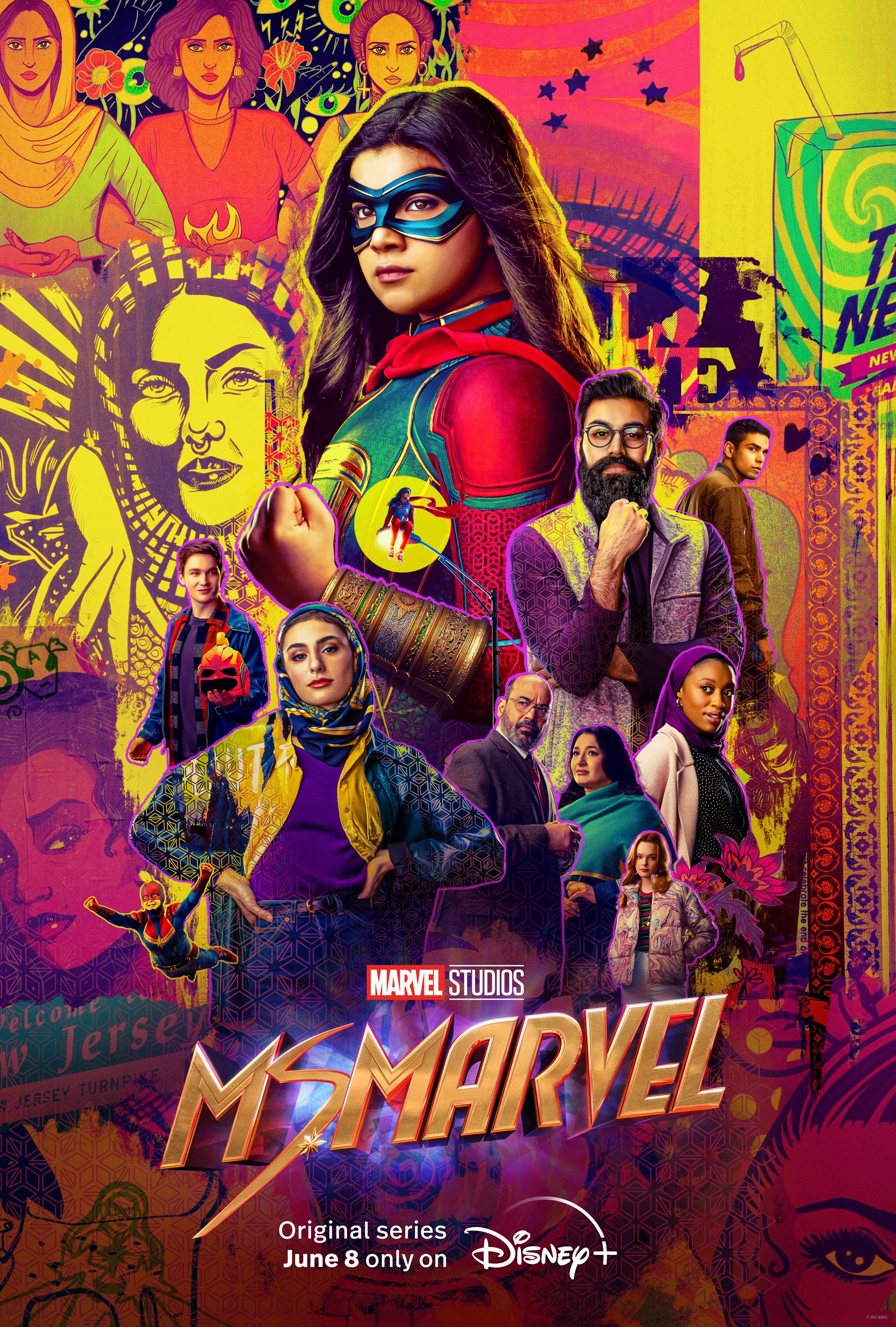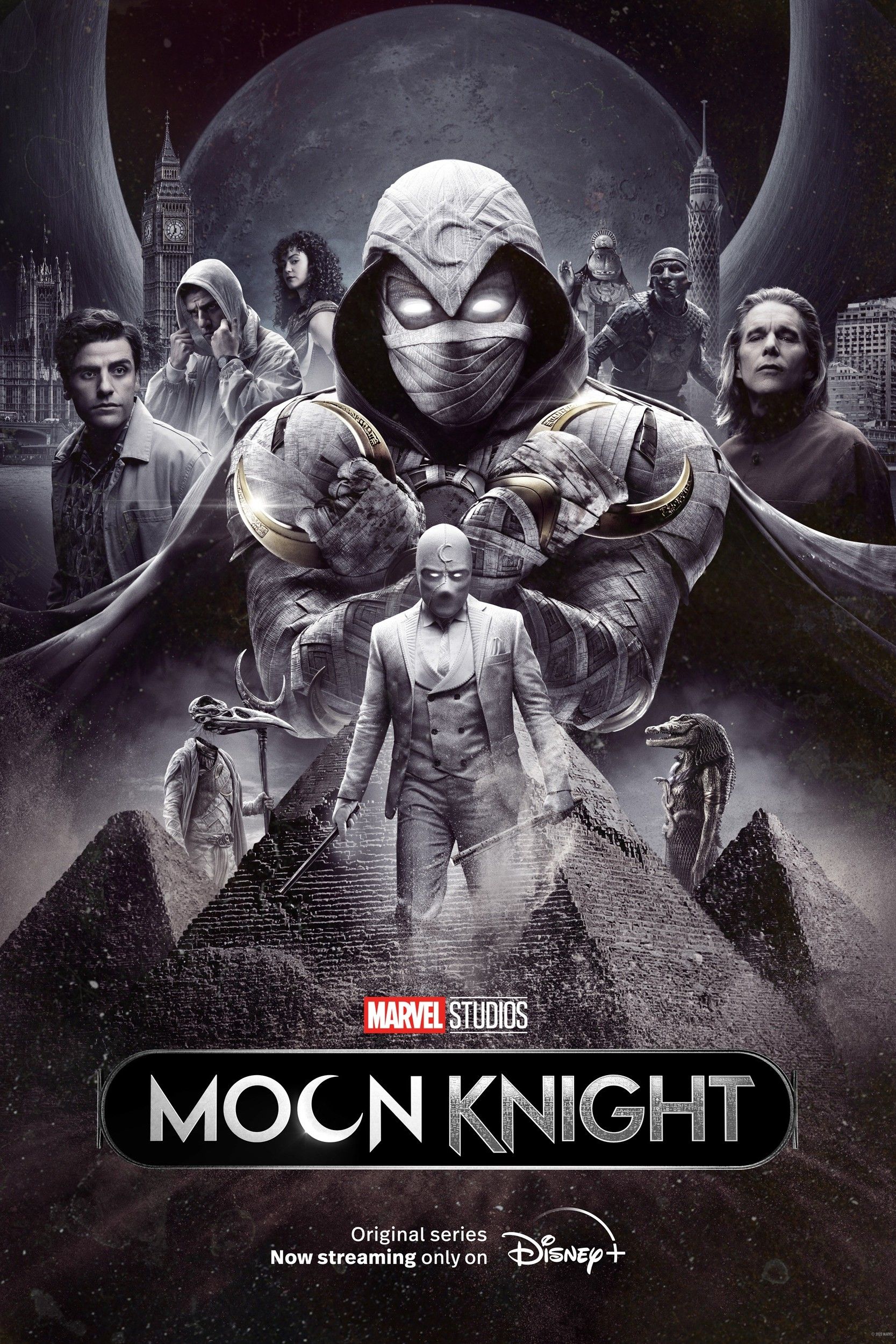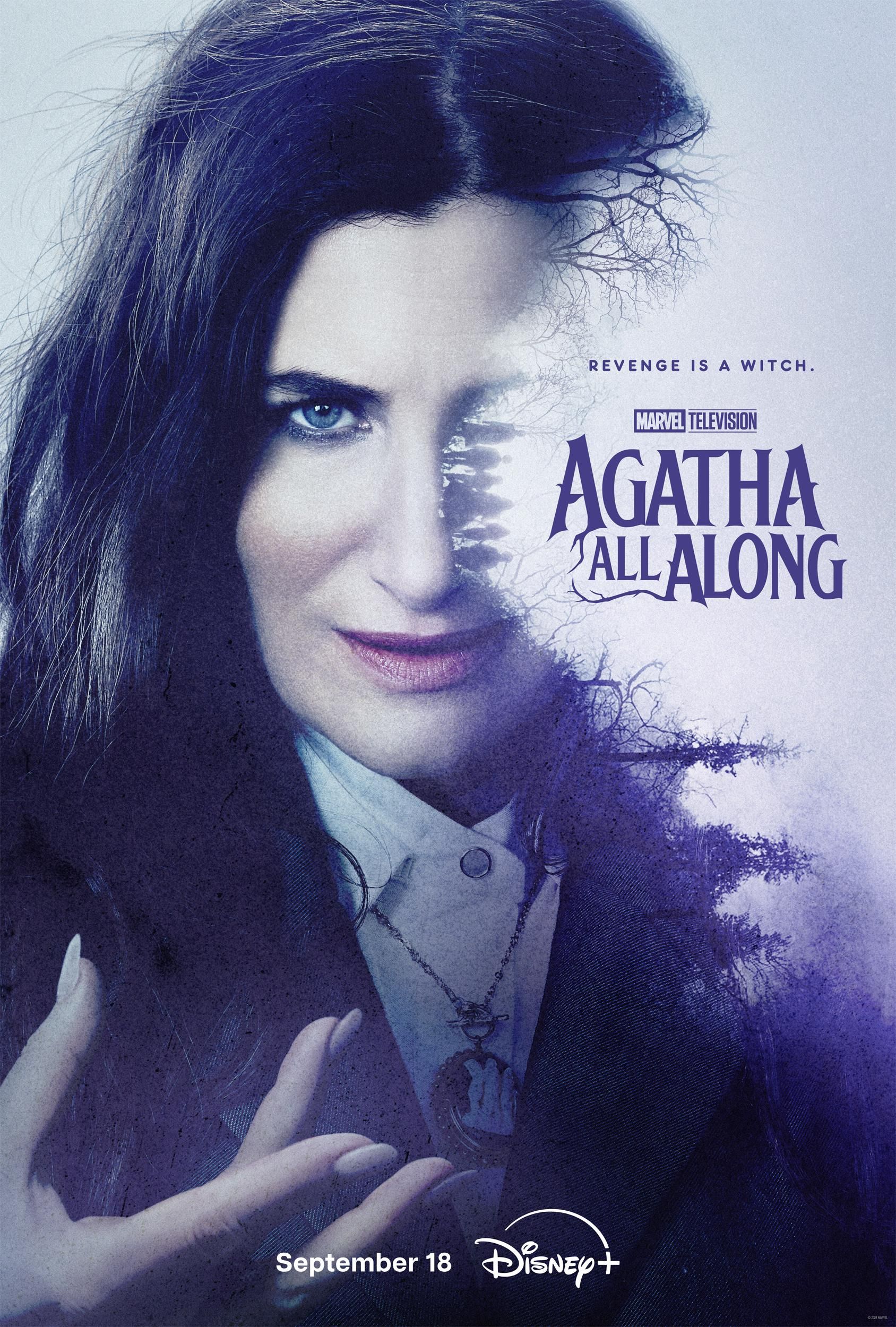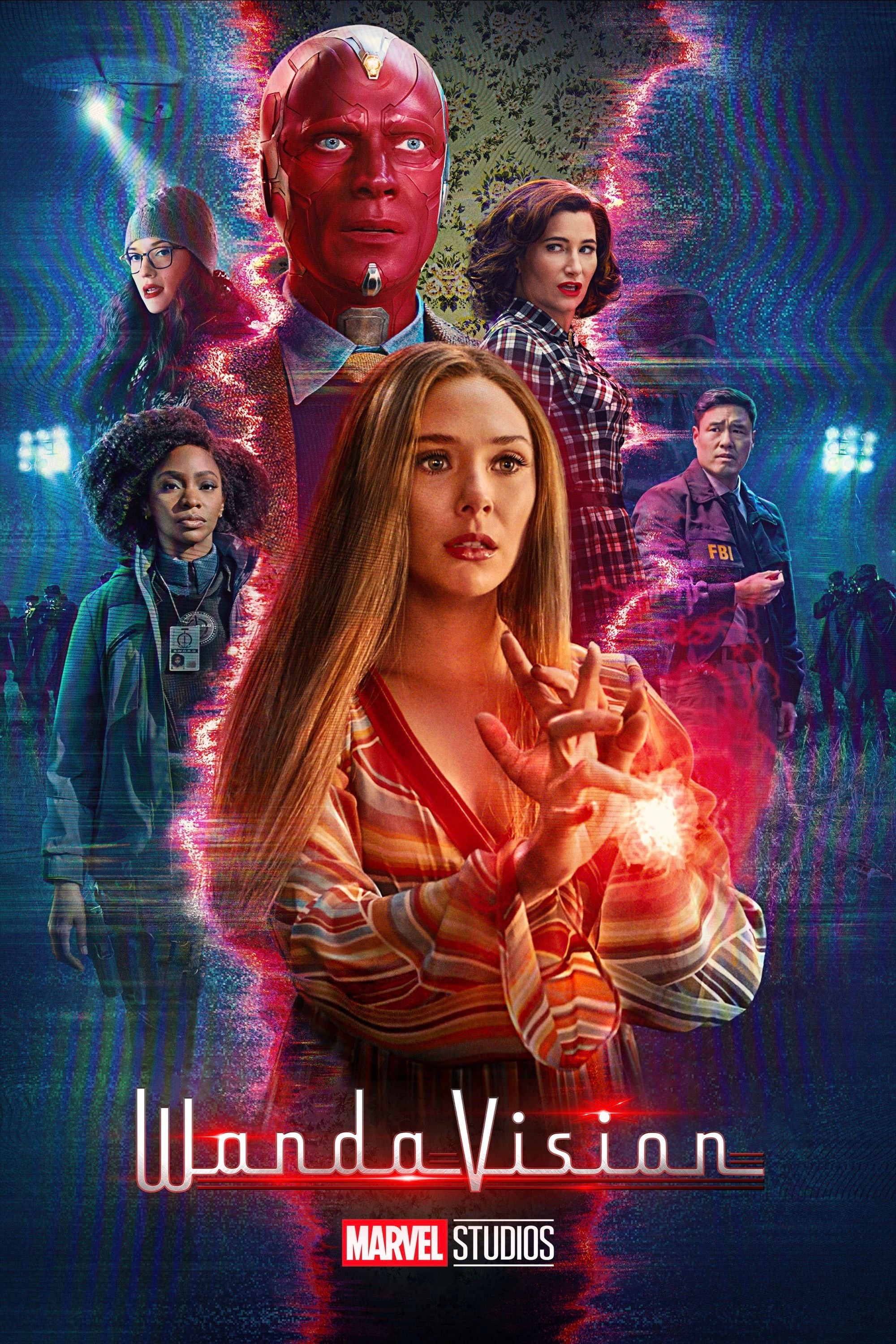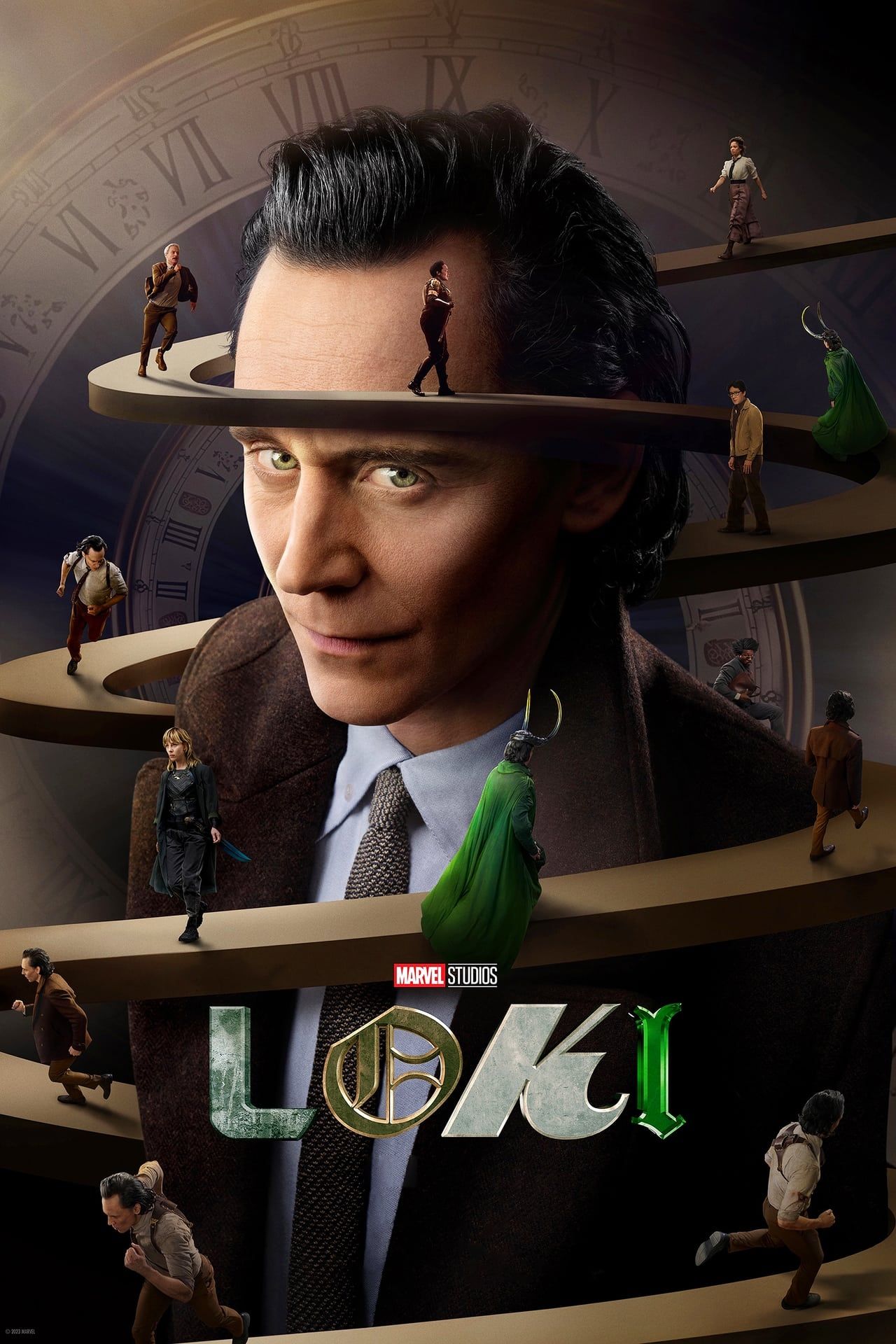Here’s every official MCU TV series, ranked from worst to best, including Agatha All Along. The Marvel Cinematic Universe timeline is expanding at a remarkable rate, with a constant stream of new TV shows releasing on Disney+ and more set to release, even with whispers of Marvel changing their approach to the small screen massively. Earlier TV series were produced by the newly revived Marvel Television banner, and they were only ever loosely connected to the mainstream MCU. Now, the TV arm will deliver on Bob Iger’s promise to focus on shows as they deserve.
Marvel is a film studio first and foremost, and consequently, they’re envisioning these TV series as “six-hour movies,” assigning directors rather than traditional showrunners, but that much has changed. Almost all the small screen productions – with the exception of Moon Knight – set up storylines or have had impacts on future MCU movies that followed (or will in future). That means Marvel needs every MCU audience member to watch the shows, which – at times – has proved to be a challenge, but not always because of quality. Whether that will change with Marvel’s new plan remains to be seen.
There have been some stumbles — the studio is repeating old Marvel Netflix mistakes with pacing, in particular — but the shows have still met with popular and critical acclaim. Marvel Studios made history by receiving no less than 23 Emmy nominations for 2021, much deserved because of the sheer quality of their productions. But how do Marvel’s Disney+ TV shows compare? Here’s Screen Rant’s official ranking of the first MCU TV series to release on the Disney+ streaming service.
All ScreenRant scores below reflect the opinion of the individual reviewers.
13 Secret Invasion (2023)
A Huge Marvel Comics Event Is Mangled By Distracting Creative Decisions
What a terrible shame. Marvel Comics’ Secret Invasion storyline ranks among the best crossover events Marvel put together, and on reflection, that success was because of absolutely nothing the MCU’s adaptation of it chose to retain. Instead of a broad-scale invasion anxiety story where literally any existing MCU character could be revealed as a Skrull, Marvel Studios decided to pull focus tightly to Nick Fury and repeatedly remind everyone that the Avengers weren’t part of this story… right up until the point all of that was thrown out of the window and they – and Endgame – once again became the focal point.
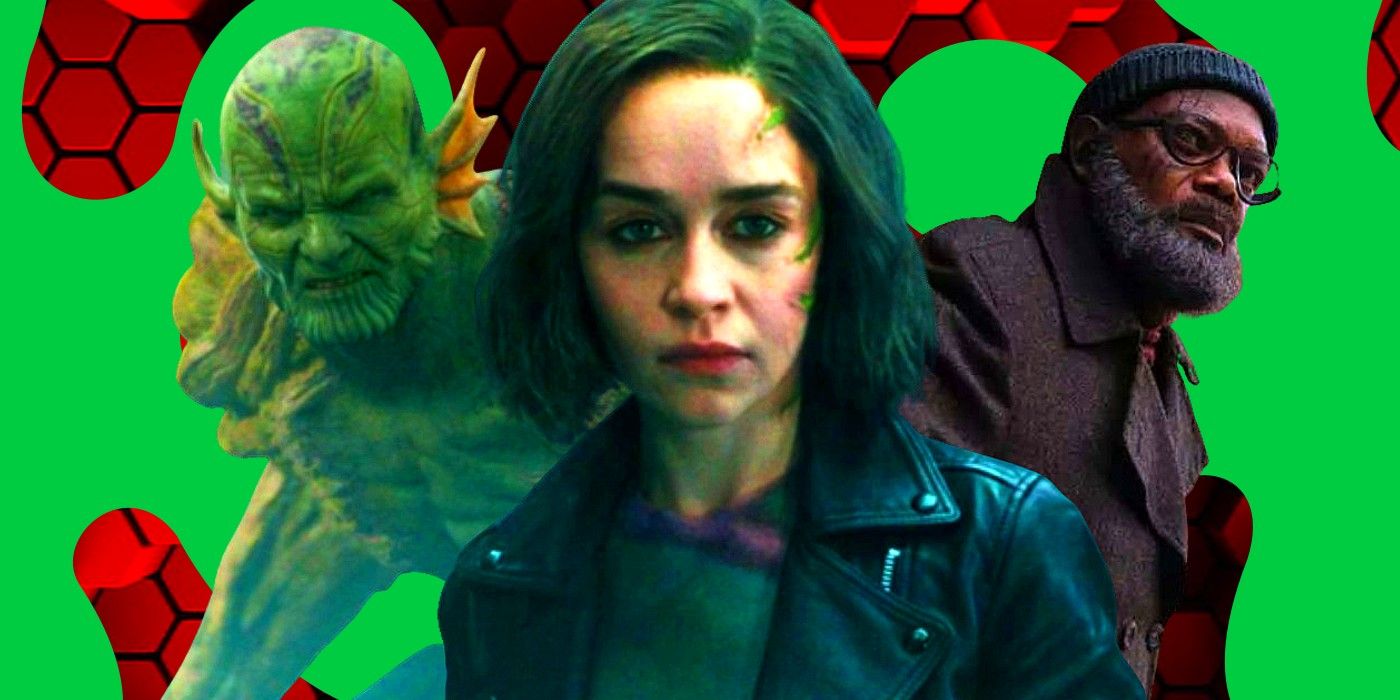
Related
Why Secret Invasion Is The MCU’s Record-Breaking Worst TV Show
The MCU’s adaptation of Secret Invasion had huge potential, but the Disney+ show makes bad decisions and undermines Nick Fury’s big opportunity.
Presented as Nick Fury’s final stand, which would tie up the Skrull story introduced in Captain Marvel, as well as introducing the sting of potential high-level impostors, Secret Invasion abandoned two of its three objectives, and made the third one too confusing. James Rhodes as a Skrull was clever, given his political value and proximity to the President, but the reveal of when Rhodey became a Skrull is ruinous and somewhat illogical.
As for the Skrull story, nothing was resolved: they still have no home, are still being exploited for their powers and are now the enemy of the people. Nick Fury, meanwhile, avoided all accountability, skipped his own final showdown, abandoned the Skrulls again and went back to space. We are literally exactly where we started, and he’s going to turn up in The Marvels for a brand-new story.
Secret Invasion was ultimately let down by poor writing, an over-reliance on twists and cliffhangers that were too quickly resolved, pacing issues (particularly in the finale) and character choices that felt alien. And not in the way they actually needed them to.
12 I Am Groot (2022-2023)
The MCU’s Adorable Hero Returns For Fun But Inconsequential Animated Shorts
I Am Groot only ranks second bottom here because it’s a largely inconsequential MCU show. Canonically confused (James Gunn says it’s not canon, Marvel Studios seems to disagree), the two seasons of animated shorts provides good fun and more Groot, which few would turn down. Vin Diesel returns as the baby version of the tree-like alien, with an anthology of stories set after Guardians of the Galaxy Vol 2‘s ending.
The animation is good without being as creative as What If…?, and the stories are mostly just vehicles for the cutest member of James Gunn’s superhero team to play around. Season 2 included a world-changing revelation centered on Groot’s real power level, but elsewhere the stakes are no more challenging than Groot’s attempts to buy an ice cream. Still, the MCU can’t be static and homogenous, and there’s definitely value to aiming releases squarely at kids (even if this is a confusing gateway to a trilogy of movies they absolutely should not watch).
11 The Falcon & The Winter Soldier (2021)
Sam Wilson Wrestles With Captain America’s Legacy, As Bucky Battles His Own Past
Starring Anthony Mackie’s Sam Wilson and Sebastian Stan as the Winter Soldier, The Falcon & the Winter Soldier explored the aftermath of Thanos’s snap and saw Falcon finally accept his role as the new Captain America. Stylistically similar to Captain America: The Winter Soldier, this spy drama sent its titular heroes on a globe-trotting adventure as they attempted to defeat a group of terrorists known as the Flag-Smashers. Meanwhile, a shadowy presence loomed in the background, the mysterious Power Broker — ultimately revealed to be Emily VanCamp’s Sharon Carter, performing something of a heel-turn.
The Falcon & the Winter Soldier was undermined by something of a by-the-numbers plot; the Power Broker reveal was overly signposted, meaning most viewers figured out the truth pretty much as soon as Sharon Carter stepped onto the scene. The political messaging of the show was underdeveloped, to the extent that there was even debate about whether some scenes intended to demonstrate systemic racism actually achieved their goal in the first place.
And the Flag-Smashers just didn’t quite work, with Marvel initially making them feel too sympathetic and then performing an act of villainy that seemed out of character, before killing them off abruptly. Erin Kellyman’s Karli Morgenthau felt as though she was killed off simply because Marvel didn’t have any long-term plans for her, not because it worked in narrative terms.
.
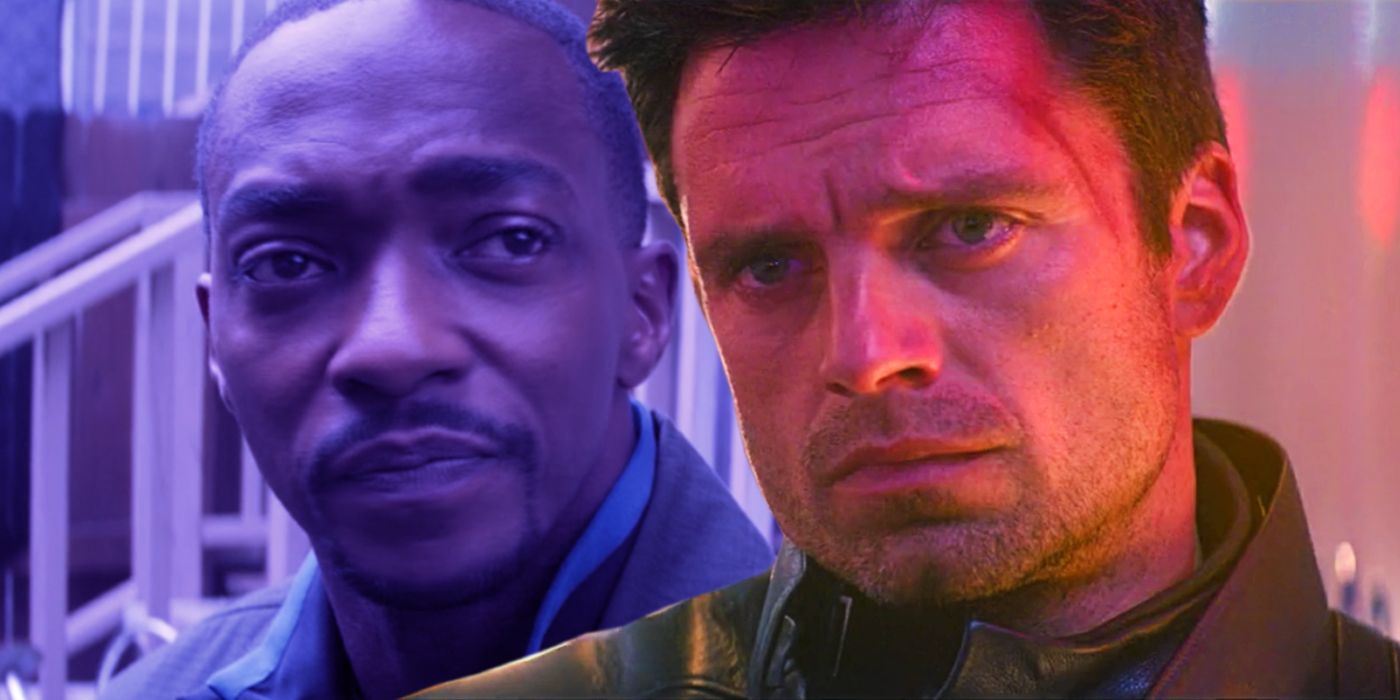
Related
Everything We Know About The Falcon & The Winter Soldier Season 2
Will The Falcon and the Winter Soldier season 2 happen, and if so, when will it release and what will its story be? Here’s everything we know.
Still, for all these criticisms that have to be made, the fact remains that Falcon & Winter Soldier was a success. Performances were excellent — especially from the two leads — and the narrative works well enough on the re-watch. The Disney+ series was bold enough to explore themes of social justice, and it dared to rewrite the history of Captain America by introducing Carl Lumbly as Isaiah Bradley the forgotten Black super-soldier.
10 What If…? (2021-Present)
Marvel’s Animated Multiverse Adventures Look Great But Struggle With Consistency
Marvel Studios’ first animated series, What If…? took advantage of the MCU’s nascent multiverse to explore branched timelines where history had played out differently. Over both seasons, episodes have varied wildly in quality; some were fascinating character studies, and others riffed on Dragonball to send Thor and Captain Marvel on a cross-continental brawl.
What If…? season 1 built to an exciting climax, with the Watcher unwittingly unleashing an Infinity-Stone-powered version of Ultron upon the multiverse, and assembling the Guardians of the Multiverse to stop him. But the show never really felt as though it lived up to its potential, its weaknesses demonstrated by the conceptually similar, but far superior, Star Wars Visions — that released at the same time as one episode of What If…?, making the contrast particularly noticeable.
What If…? season 2 took things further, advancing both the good and the bad of the animated show. Some episodes – like the Die Hard-riffing Christmas episode centered on Happy Hogan saving Avengers Tower from Justin Hammer and the introduction of Mohawk hero Kahhori – are very good, while others don’t really justify their existence. The show is fun enough without really justifying its own What If concept: it would be better if the parallel stories actually tied to real events in the MCU. With season 3 confirmed, there’s still hope that the stories can match the quality of the excellent animation.
9 She-Hulk: Attorney At Law (2022)
An Expensive But Over-Hated Debut For She-Hulk That Sets Up A Promising Future
She-Hulk: Attorney at Law felt like one of the few MCU TV shows to fully understand the difference between a film and a TV series. Tatiana Maslany was perfectly cast as the titular She-Hulk, a.k.a. Jennifer Walters — Bruce Banner’s cousin, who gains Hulk powers of her own when she’s exposed to Bruce’s blood.
She-Hulk: Attorney at Law did a good job developing its secondary characters, using a fairly traditional A-B plot structure that is nevertheless quite unusual in the MCU. Unfortunately, as enjoyable as the series may have been, it also feels thematically disjointed; that was particularly visible in the ending when Jennifer Walters’ emotional arc is hand-waved aside in favor of having She-Hulk break the fourth wall.
There’s a strange sense of self-awareness to She-Hulk: Attorney at Law, but it’s actually handled in quite a negative manner, as though the show knows what it is — and isn’t sure whether it likes it. The Disney+ TV series is overly dependent on cameos, and yet it continually sees Jennifer Walters stress her ownership of the story. The focus is apparently on how Jennifer comes to accept she is both She-Hulk and Jen, and yet it’s unclear how that resolution is reached, with viewers literally told it in the final episode rather than actually seeing it happen.
While some individual episodes are among the best in the MCU to date, others simply don’t work. Sadly, viewers will mostly remember She-Hulk for its “World War Hulk” setup rather than a strong entry in its own right.
8 Echo (2024)
2024’s Opening Mini-Series Soars At Its Best But Suffers From Poor Pacing And Editing
On paper, Marvel’s first release of 2024, Echo, was probably a difficult sell. A spin-off of a spin-off (after Maya Lopez’s story started in Hawkeye, of course), the show was deemed enough of a challenge to the studio to warrant a completely different release model to every other live-action MCU TV show.
Dropping all at once on Disney+, the mini-series followed the events of Hawkeye, as Alaqua Cox’s titular villain strove to destroy Kingpin’s New York empire and replace him as the Queenpin. Promising the return of Vincent D’Onofrio’s Kingpin and Charlie Cox’s Daredevil, Echo is actually something completely different, despite a marketing campaign that rather leaned on those recognizable character brands.
.
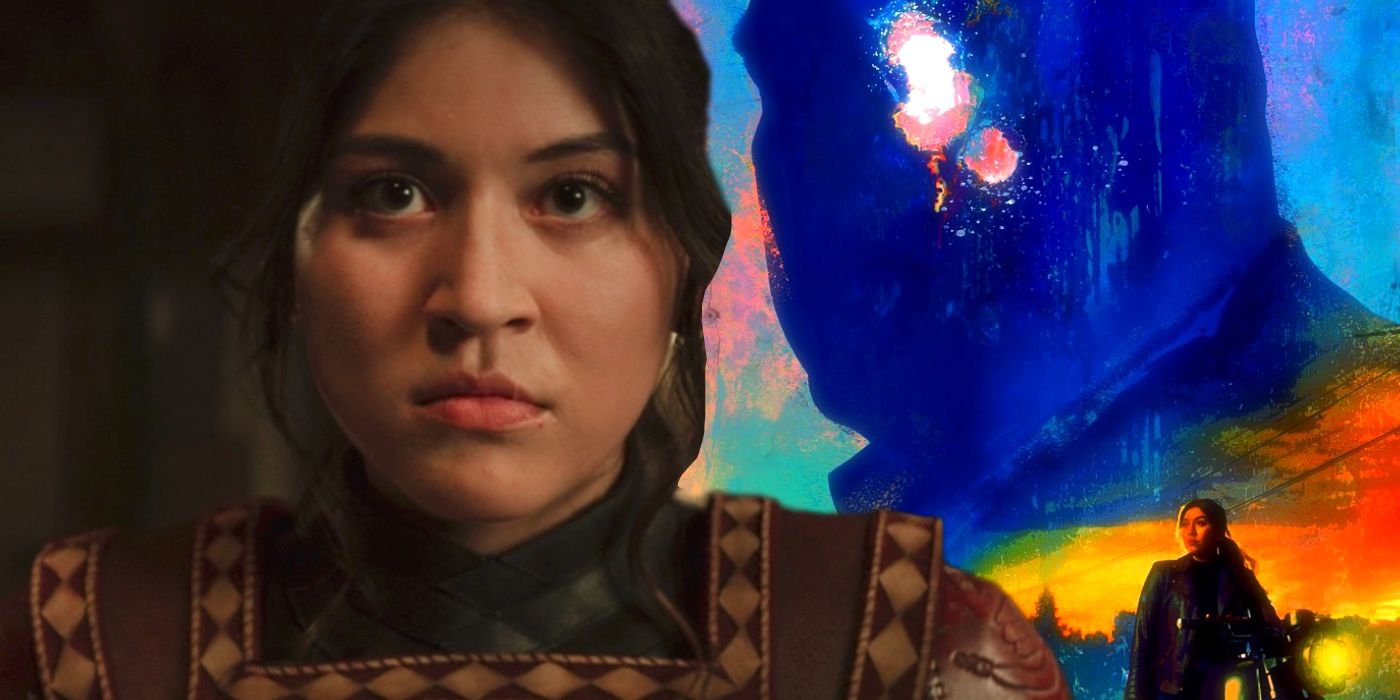
Related
Marvel’s Echo Ending Explained
Marvel’s Echo ends with an epic finale episode, featuring Maya Lopez as she finally chooses which legacy she truly belongs to in the MCU.
Cox is excellent as the conflicted villain, who is confronted with her own legacy as new superpowers tying her to her ancestral home emerge in parallel to her war with Kingpin. Exploring identity and belonging as key themes, the bones of the story are very good, but in honesty suffer at times from an obviously brutal editing process that shifted a lot around. More Kingpin is obviously great, and Daredevil has an interesting cameo, but the successes are mostly tied to Echo’s own journey, and the prospect of her return is very exciting. More exciting, in fact, than it was before this show was greenlit.
7 Ms. Marvel (2022)
Kamala Khan’s MCU Debut Opens The YA Arm Of The Franchise With Style
Based on a superhero who only made her comic book debut back in 2014, Ms. Marvel was the least-watched MCU TV show at the time of its release – in part because of poor timing, with episodes dropping to coincide with Obi-Wan Kenobi and Thor: Love & Thunder, both of which ate into the show’s publicity. It’s a real shame because this was stylistically unique among Marvel fare, and not just because it starred the MCU’s first Muslim-American superhero.
Ms. Marvel featured lavish cinematography, creative visual effects – including a delightful way of presenting text messages – and a well-developed supporting cast. It was unfortunately undermined by the Clandestines, the villains whose heel-turn (and subsequent redemption) felt rushed. Ms. Marvel stuck the landing well regardless, with Iman Vellani’s Kamala Khan returning to Jersey to face Damage Control.
Ms. Marvel is one of the Disney+ TV shows with the most pronounced impact on the shared universe, with the final episode setting its star up as the MCU’s first official mutant. There’d been speculation about how Marvel would introduce mutants and the X-Men into the MCU, and Ms. Marvel pulled it off with skill.
6 Hawkeye (2022)
Jeremy Renner’s Avenger Returns To Face His Endgame Ghosts In A Strong Festive Series
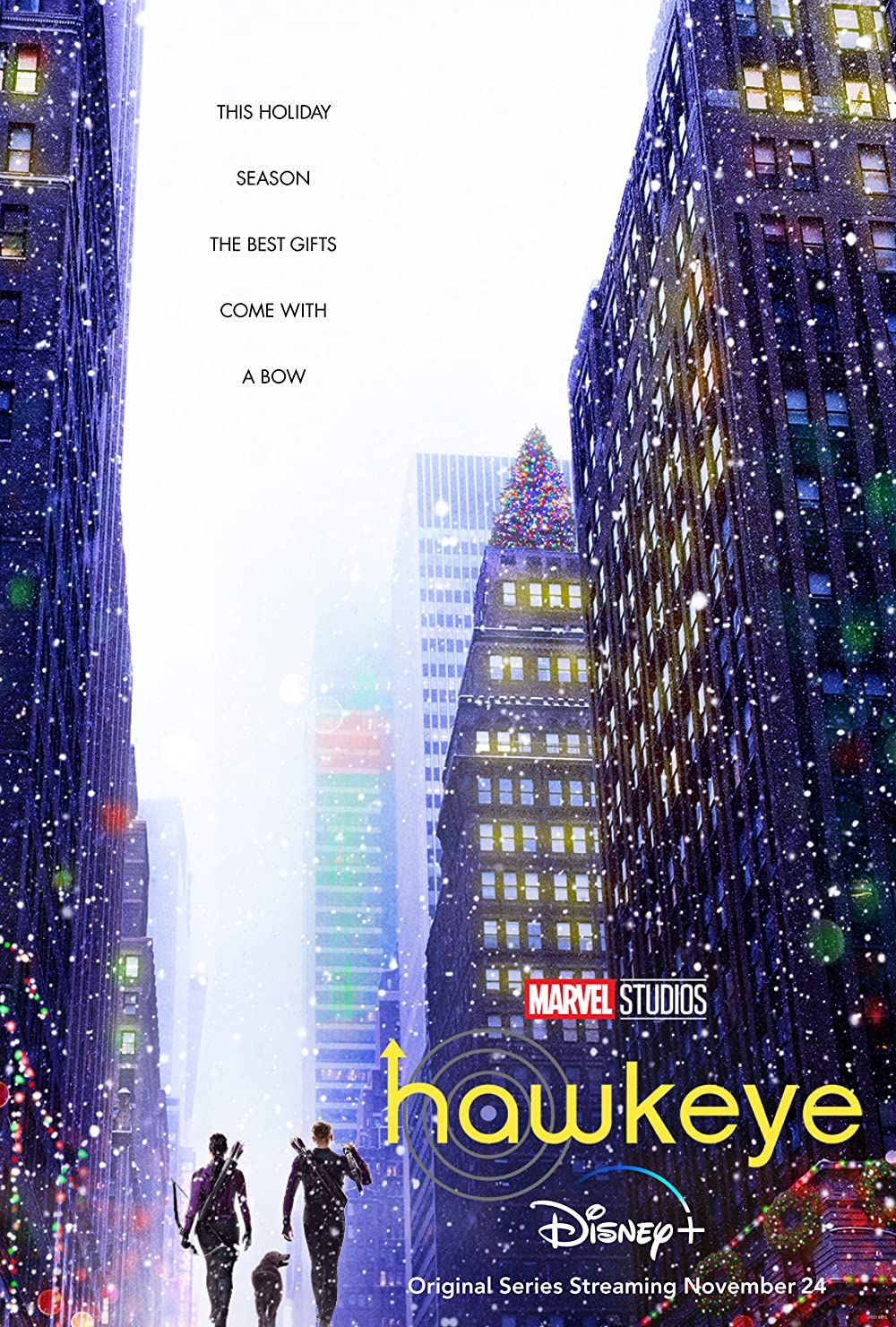
Still reeling from the fallout of Avengers: Endgame, Clint Barton (Jeremy Renner) is drawn back into an urgent mission as the ghosts of his past threaten to destabilize his peaceful family life. Thrust into a new dynamic with young upstart Kate Bishop (Hailee Steinfeld), the original Avenger must escape a hit, uncover the secret of Kingpin’s return, and get home in time for Christmas.
- Release Date
- November 24, 2021
- Seasons
- 1
- Streaming Service(s)
- Disney+
- Writers
- Don Heck , Jonathan Igla
Avengers: Endgame saw Clint Barton turn into a brutal vigilante Ronin as a result of his family’s deaths, but when the dust settled from the final battle against Thanos there were remarkably few consequences from his time in the shadows. Hawkeye corrected that mistake, when Hailee Steinfeld’s Kate Bishop claimed the Ronin costume – and unwittingly earned Clint’s old enemies.
There’s a sense in which Hawkeye was the perfect Christmas fare, relatively lightweight and with much lower stakes than typical Marvel films and TV shows, even ending with a Christmas dinner. The dynamic between Jeremy Renner and Hailee Steinfeld was tremendous, with the two proving effective partners.
.
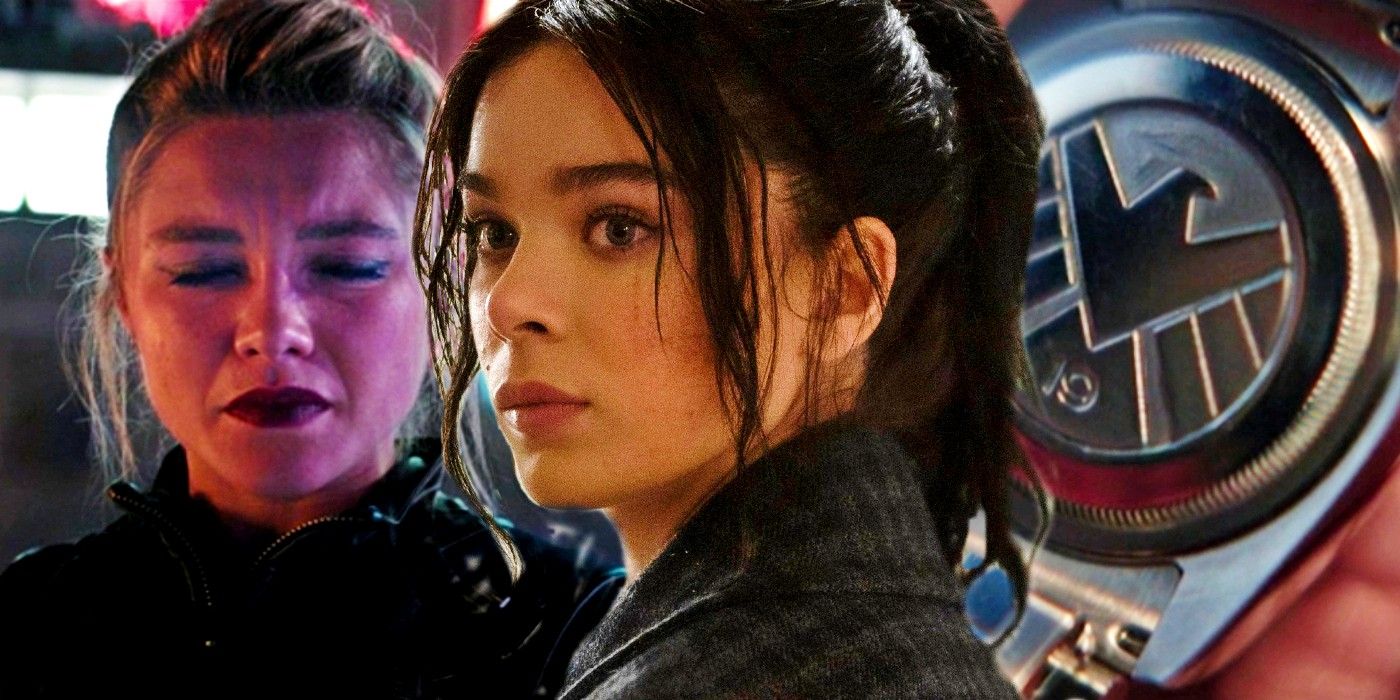
Related
Hawkeye’s Ending Explained
Marvel’s Hawkeye finale sets up the future of the MCU – with Kate Bishop becoming a superhero at last, and Maya Lopez transforming into Echo.
Most viewers will remember Hawkeye because of its impact on the MCU’s lore, though, because it features the return of Vincent D’Onofrio as Kingpin — the character he played in the old Marvel Netflix TV shows, which were subtly implied to be MCU canon once again. While D’Onofrio performed the role as well as ever, the introduction of Kingpin was a little too well-signposted, meaning the villain reveal lacked impact. Hawkeye served as a launchpad for Alaqua Cox’s Echo, a member of Kingpin’s family betrayed by Wilson Fisk; she’ll have her own spinoff, although it’s unclear what direction Marvel will take her story.
5 Moon Knight (2022)
Oscar Isaac Shines In Marvel’s Ultra-Violent Meditation On Trauma
Moon Knight is the perfect example of a show that clambered out of the MCU Disney+ TV show comfort zone to produce something unusual and special. Marc Spector’s exploits feel remarkably disconnected from the mainstream MCU; it’s only possible to figure out where it sits in the MCU timeline because of the phases of the moon.
Moon Knight’s Dissociative Identity Disorder makes portraying the character a real challenge for star Oscar Isaac, who has to switch from Steven Grant to Marc Spector at speed – sometimes in the same scene. Moon Knight explores Egyptian mythology and the supernatural, and the show is packed with inventive twists, many of which are lifted straight from the comics.
Many of the Disney+ TV shows struggle to make the landing, with disappointing finales. While Moon Knight‘s ending feels a little rushed in places, it’s thematically strong, and notable for the transformation of May Calamawy’s Layla into a superhero in her own right, the Scarlet Scarab, who really deserves her own spinoff. The post-credits scene picks up the last loose end and turns it into a setup for the character’s future – a final, skillful twist that makes it truly worthwhile.
4 Agatha All Along (2024)
The MCU’s First WandaVision Spin-Off Delivered A Surprisingly Great Story
On paper, we probably didn’t need Agatha All Along to exist, but after the nine episodes aired on Disney+, there can be few complaints with the assessment that show-runner Jac Schaeffer is one of the most talented storytellers currently working under the MCU umbrella. Built on the back of 2021’s bold, creative WandaVision, the spookier, cookier spin-off reunites Marvel fans with Kathryn Hahn’s delightful antihero Agatha Harkness as she deals with the fallout of Wanda’s Westview hex.
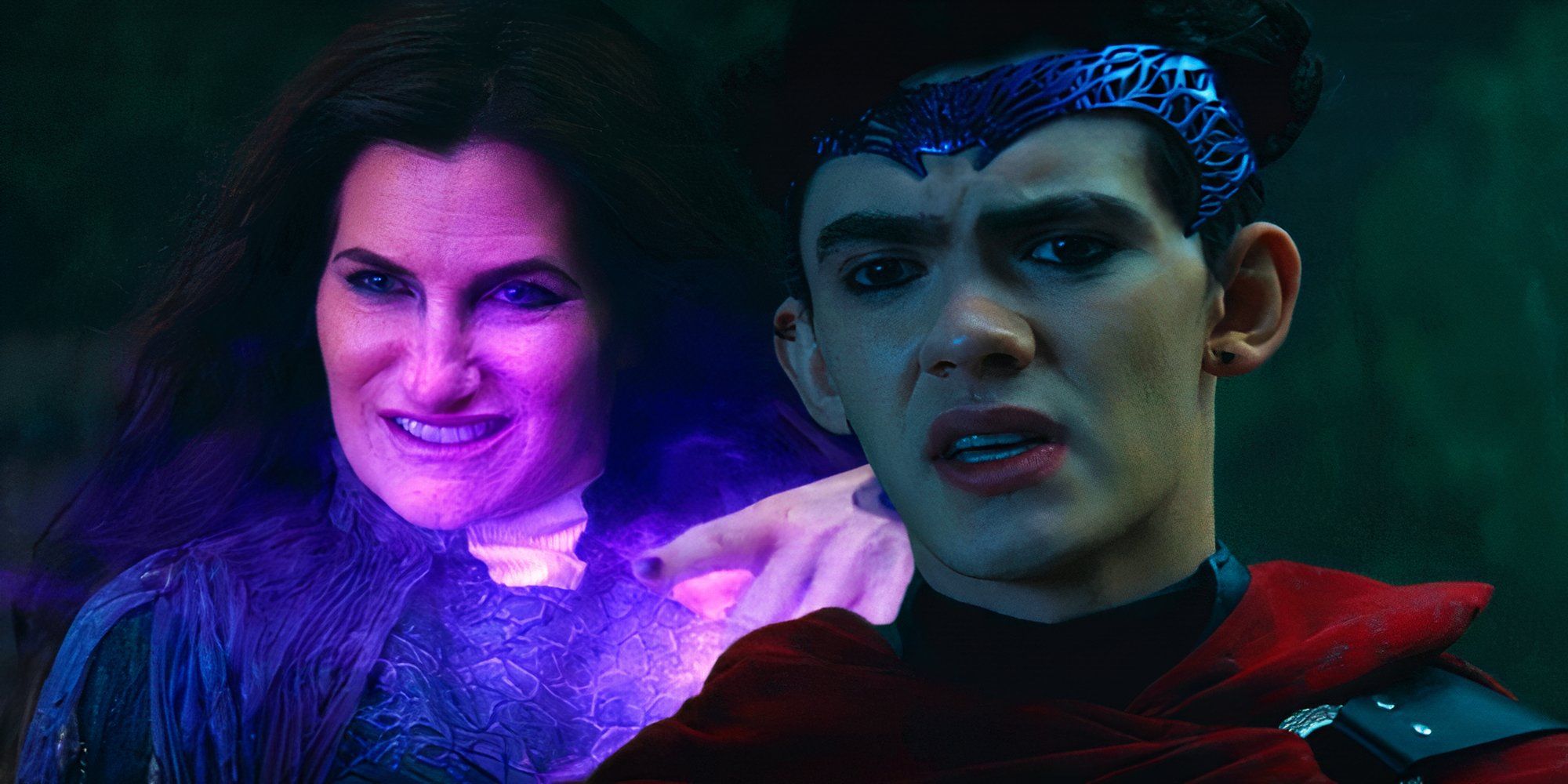
Related
Agatha All Along’s Ending Explained
Agatha All Along episodes 8 and 9 end the show in a thrilling two-part finale, answering many major questions and teasing more to come in the MCU.
Taking in incredibly well-observed pop culture references and the same sort of irresistible mystery box storytelling that made WandaVision such a high-point for the MCU, Agatha All Along is the perfect answer to anyone suggesting Marvel needs to stop taking such wild swings. Not only does the show expand the Scarlet Witch Saga – bravely without her presence at all – but it adds deep context to Agatha as a character, as well as setting up another exciting MCU story without the usual accusations of glacing too far ahead.
There are very few things to complain about in good faith, with Hahn’s performance – as well as those of Joe Locke (as Billy Maximoff), and Aubrey Plaza (as Rio Vidal) – standing out impressively. It’s hard not to over-emphasize just how good the storytelling here is: it’s mature, funny, and unafraid of delaying pay-offs in the name of character development, and in episode 7, it can probably boast the greatest episode of live-action Marvel TV ever made.
3 WandaVision (2021)
Scarlet Witch Returns In A Creative Exploration Of Personal Loss
Starring Elizabeth Olsen as Wanda Maximoff and Paul Bettany as Vision, WandaVision is, to date, the most creative of the MCU’s Disney+ TV shows, in that it’s as much a superhero sitcom as anything else. The core concept is well handled, with viewers initially as confused as Wanda herself about what’s going on, and only gradually learning the truth. Smart writing handles retcons well; WandVision retcons the Scarlet Witch’s entire origin story, with Wanda redefined and set up as a force to be reckoned with.
Some dialogue is unforgettable, with one line from Vision, in particular, capturing the mood of a mid-pandemic world when he asked, “What is grief but love persevering?” Capping it all off, WandaVision features a stunning soundtrack, with “Agatha All Along” rightly earning an Emmy nomination for outstanding music and lyrics.
WandaVision was the first Marvel Studios TV production, and it set the bar high. So far, most of the other Disney+ TV series have failed to matched it, but the reality is these are still early days; the second wave of Marvel TV shows has now begun, with the studio now using Disney+ to introduce brand new MCU characters. The truth is, Marvel is just getting started – and the studio is sure to learn from its stumbles, meaning future MCU TV shows should be even better.
2 X-Men ’97 (2024)
The Long-Awaited X-Men Revival Was More Than Worth The Wait
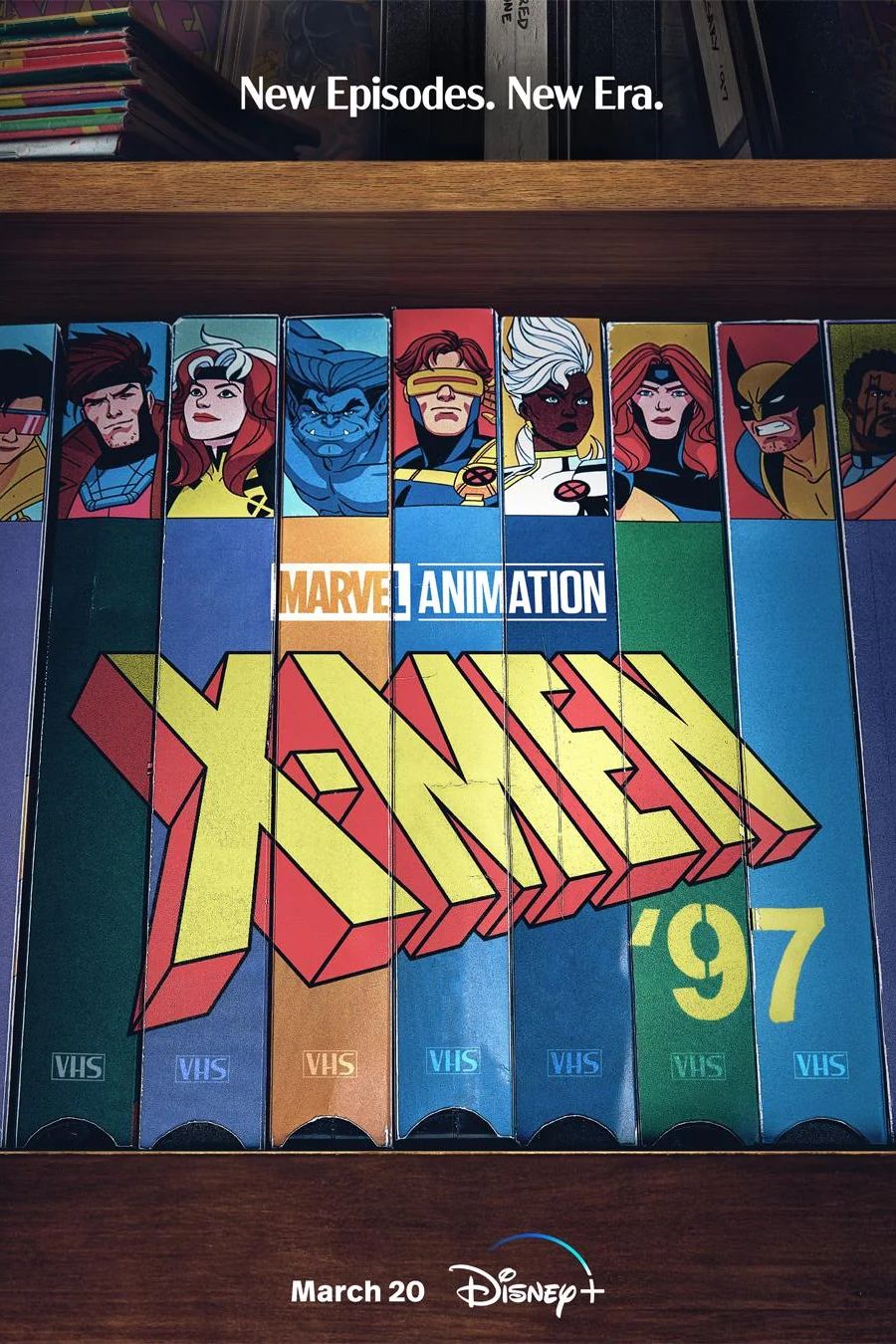
X-Men ’97 is the direct continuation of the popular 1990s animated series X-Men: The Animated Series. Taking up where the third season left off, Marvel’s revival brings back famous mutants such as Wolverine, Storm, Rogue, Gambit, Cyclops, Beast, Magneto, and Nightcrawler, who fight villains like Mr. Sinister, the Sentinels, and the Hellfire Club.
- Release Date
- March 20, 2024
- Cast
- Jennifer Hale , Chris Potter , Alison Sealy-Smith , Lenore Zann , Cal Dodd , Catherine Disher , Adrian Hough , Ray Chase , Chris Britton , George Buza
- Seasons
- 1
- Writers
- Beau DeMayo
- Directors
- Jake Castorena
Almost thirty years after X-Men: The Animated Series ended, Marvel’s X-Men ’97 smashed all expectations with a 10-episode event that might just have whoever is down to take over the reins for the new live-action X-Men movie worried about living up to its standards. Those 10-episodes may have been accessibly short, but they pack in a huge story, drawing from many seminal arcs from the X-Men comics, with enough originality to keep things fresh.
While creator Beau DeMayo was careful to keep the overall feel and look of TAS, the gifted animation team at Studio Mir also drew heavily from anime to change things up. The characters feel familiar (even with some necessary recastings), and the development afforded by DeMayo’s eye for story took them further than the original show. This is very much a more grown-up revival, exploring collective trauma and more overtly embracing the taboo subject of superhero sex.
.
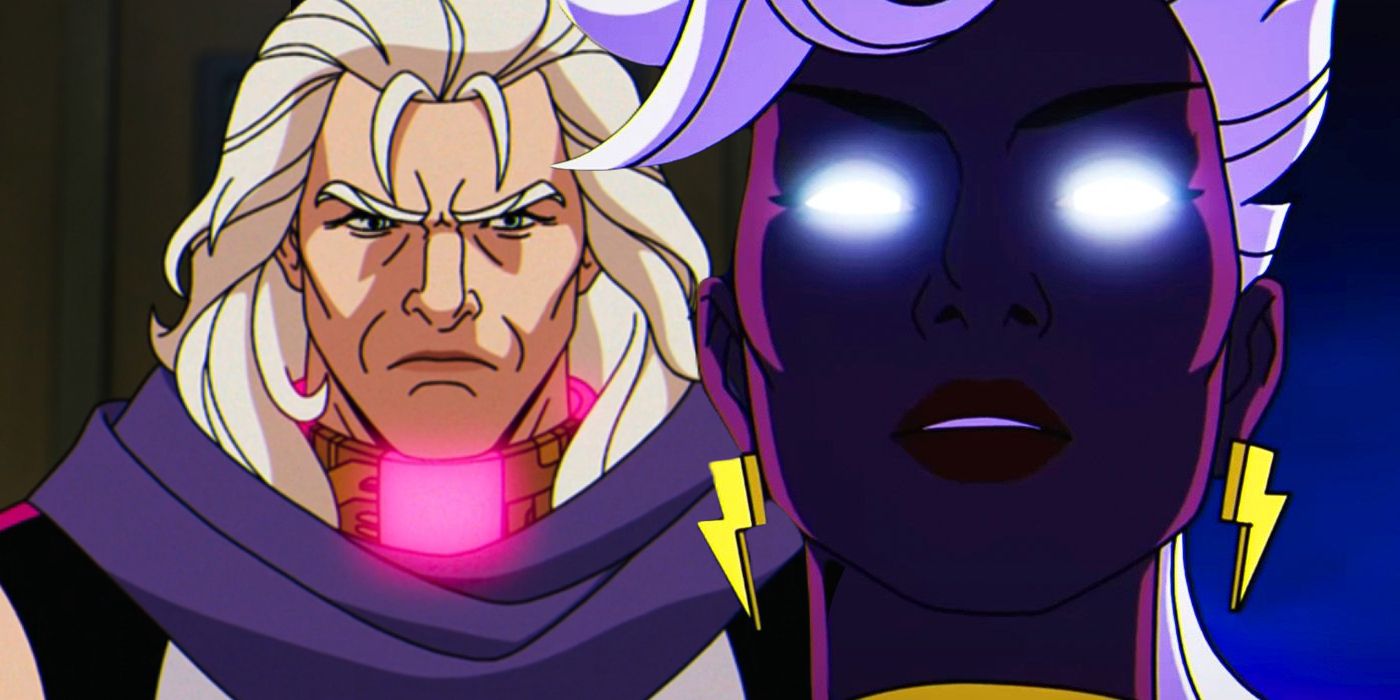
Related
X-Men ’97 Season 2: Characters, Story & Everything We Know
X-Men ’97 Season 1 is now available on Disney Plus, and here is everything we know about Season 2’s characters, story details, and more.
The high-point was absolutely Remember It – episode 5 – which married cinematic scale with deeply painful, personal story-telling, but really, there are no weak episodes in season 1. The three-part finale stuck the landing, as well as setting up a gloriously exciting future with the already confirmed season 2.
1 Loki (2021-2023)
Tom Hiddleston’s God Of Mischief Writes His Own Story In The High Point Of The MCU Multiverse
On paper, Loki was Disney+’s vehicle for Tom Hiddleston to return as the trickster god in the aftermath of Avengers: Endgame. There, the Avengers had unwittingly created a branched timeline in which Loki escaped with the Tesseract after the Battle of New York in 2012, and this variant was arrested by the Time Variance Authority. What followed was an entertaining time travel adventure in which Hiddleston teamed up with Sophia Di Martino’s Sylvie (another Loki variant and an unlikely love interest). They ultimately discovered the true power behind the throne of the TVA, and launched the new Marvel Multiverse.
Loki season 1 isn’t without its faults. Episode 3 has notable pacing problems, and some plot elements don’t quite work – most notably why the spark of romance between Loki and Sylvie caused a nexus event in episode 4 when it happened on a world that was about to be destroyed. Sadly, the Loki finale demonstrates the core problem of an MCU TV show, in that Loki was essentially overshadowed in his own series by the introduction of Jonathan Majors’ Kang the Conqueror. But there were more than enough successes to announce it as one of the best MCU TV shows.
When Loki season 2 arrived, that quality was dialed up very well. Gambling on relegating Sylvie to a supporting role, Loki season 2 proved immediately that that controversial decision was justified. The God of Mischief’s story comes back to the forefront, as he wrestles with his own legacy and the idea of writing his own story, ultimately tying up his entire MCU thread beautifully. The high-concept sci-fi premise is complex, but incredibly rewarding, and Loki season 2’s ending will take some beating as the best MCU TV finale of all time.



